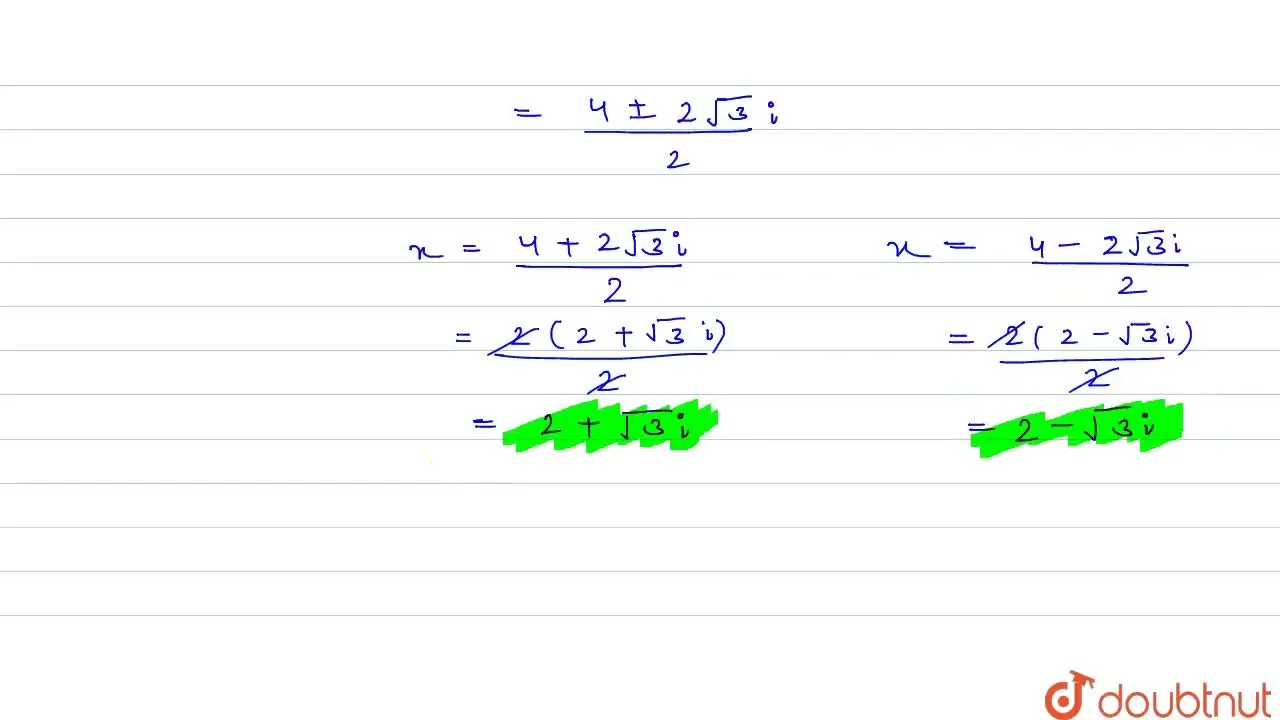Solve the following quadratic: x2−4x+7=0
Video Solution
Text Solution
The correct Answer is:The roots of the given equation are 2±√3i
Given as x2−4x+7=0
$$
\begin{aligned}
&x^{2}-4 x+4+3=0 \\
&x^{2}-2(x)(2)+2^{2}+3=0 \\
&(x-2)^{2}+3=0\left[\text { Since }(a-b)^{2}=a^{2}-2 a b+b^{2}\right] \\
&(x-2)^{2}+3 \times 1=0
\end{aligned}
$$
As we know, i2=−1⇒1=−{i}2
On substituting 1=−i2 in the above equation, we get
$$
\begin{aligned}
&(x-2)^{2}+3\left(-i^{2}\right)=0 \\
&(x-2)^{2}-3 i^{2}=0 \\
&(x-2)^{2}-(\sqrt{3} i)^{2}=0
\end{aligned}
$$
[On using the formula, a2−b2=(a+b)(a−b) ]
$$
\begin{aligned}
&(x-2+\sqrt{3} i)(x-2-\sqrt{3} i)=0 \\
&(x-2+\sqrt{3} i)=0 \text { or }(x-2-\sqrt{3} i)=0 \\
&x=2-\sqrt{3} i \text { or } x=2+\sqrt{3} i \\
&x=2 \pm \sqrt{3} i
\end{aligned}
$$
∴ The roots of the given equation are 2±√3i
|
Updated on:21/07/2023
Related Playlists
Similar Questions
Solve the following quadratic: 5x2−6x−2=0
View SolutionSolve the following quadratic: x2+x+1=0
View SolutionSolve the following quadratic: 8x2−9x+3=0
View SolutionSolve the following quadratic: x2+2x+2=0
View SolutionSolve the following quadratic: 3x2−4x+203=0
View SolutionSolve the following quadratic: 2x2+x+1=0
View SolutionSolve the following quadratic: x2+x−20=0
View SolutionSolve the following quadratic: 17x2−8x+1=0
View SolutionSolve the following quadratic: 4x2+1=0
View SolutionSolve the following quadratic: x2+x+1=0
View Solution


